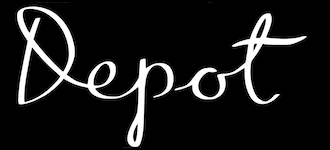The Vietnam War began in the 1940s when communists in North Vietnam attempted to overthrow the brutal French colonial regime. After the country was split into two the communist forces or “Vietcong” led a guerrilla war against the US backed South. Successive American governments ramped up their response in the belief that if Vietnam fell to the communists a “domino” effect would see insurgences across all of Southern Asia.
In 1965 the Americans launched an indiscriminate bombing campaign across Vietnam, Laos and Cambodia using napalm and “Agent Orange”, a chemical weapon. Hundreds of thousands of civilians were killed and maimed. In retaliation the North Vietnamese launched the Tet Offensive in 1968, fiercely attacking US bases and resulting in bloody hand to hand combat. In March 1968 after the My Lai massacre, in which hundreds of civilians were raped and murdered by American troops, the American public turned angrily against the war and there were widespread demonstrations across the country. The global impact of the photograph of the “napalm girl” in 1972 sealed an ignominious defeat for America by 1975.
Studios were wary of making films about the Vietnam war given that thousands of US conscripts had been killed and injured in the conflict. This attitude strengthened with the release of John Wayne’s disastrously jingoistic The Green Berets in 1968. But a number of notable film directors sought to develop anti-war themes which avoided political statements in favour of depicting the dehumanizing impact that combat had on young American soldiers.
Michael Cimino’s The Deer Hunter (1978) explores the lives of three Russian-American steelworkers from Pennsylvania who are drafted into the conflict, where they are captured by the Vietcong. The film is famous for its controversial Russian roulette sequences and features stand out performances from Robert de Niro, Christopher Walken and a young Meryl Streep. Notable for its use of social realism and containing disturbing scenes, The Deer Hunter went on the win 5 Oscars.
A year later Frances Ford Coppola released his extraordinary movie Apocalypse Now, framing the Vietnamese conflict around a retelling of Joseph Conrad’s novel Heart of Darkness. A tour-de-force of filmmaking the film explores the madness of war through a series of stunning set pieces and is notable for its striking cinematography and a powerful cameo by Marlon Brando as the renegade Colonel Kurtz.
Perhaps the most iconic Vietnam movie is Platoon, released in 1986 and written and directed by Oliver Stone, who had himself served in Vietnam. The film examines the moral choices faced by men when confronted by the horror of war and its brutalising effects and features a brilliant young ensemble cast. It won four Oscars out of eight nominations.
The last great Vietnam movie was Stanley Kubrick’s Full Metal Jacket, released in 1987. Following a group of recruits from their brutal boot camp training to bloody street fighting it features all of Kubricks’s acclaimed technical brilliance and storytelling skill.
Films in this series
